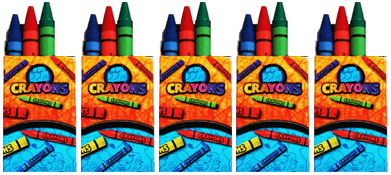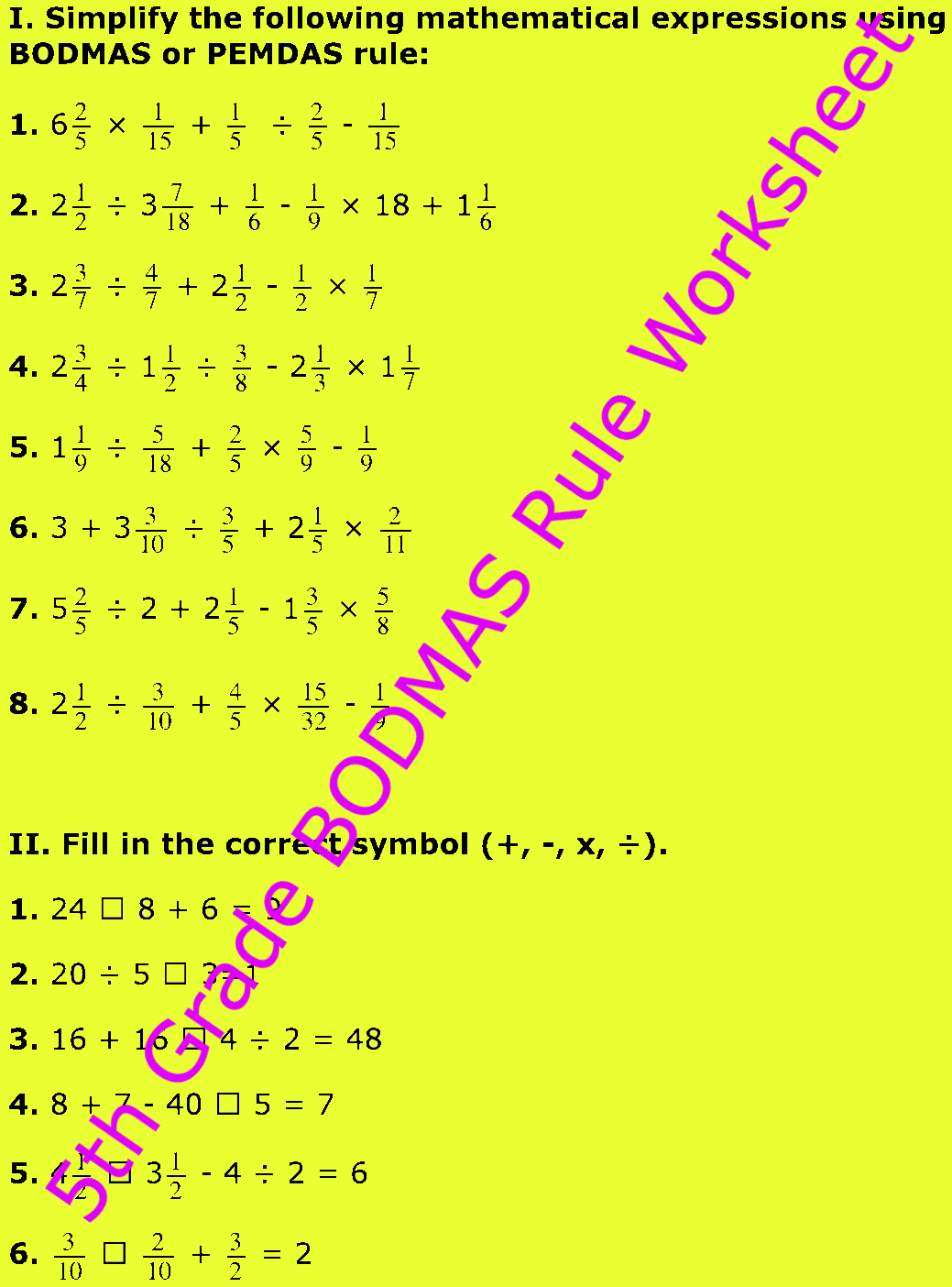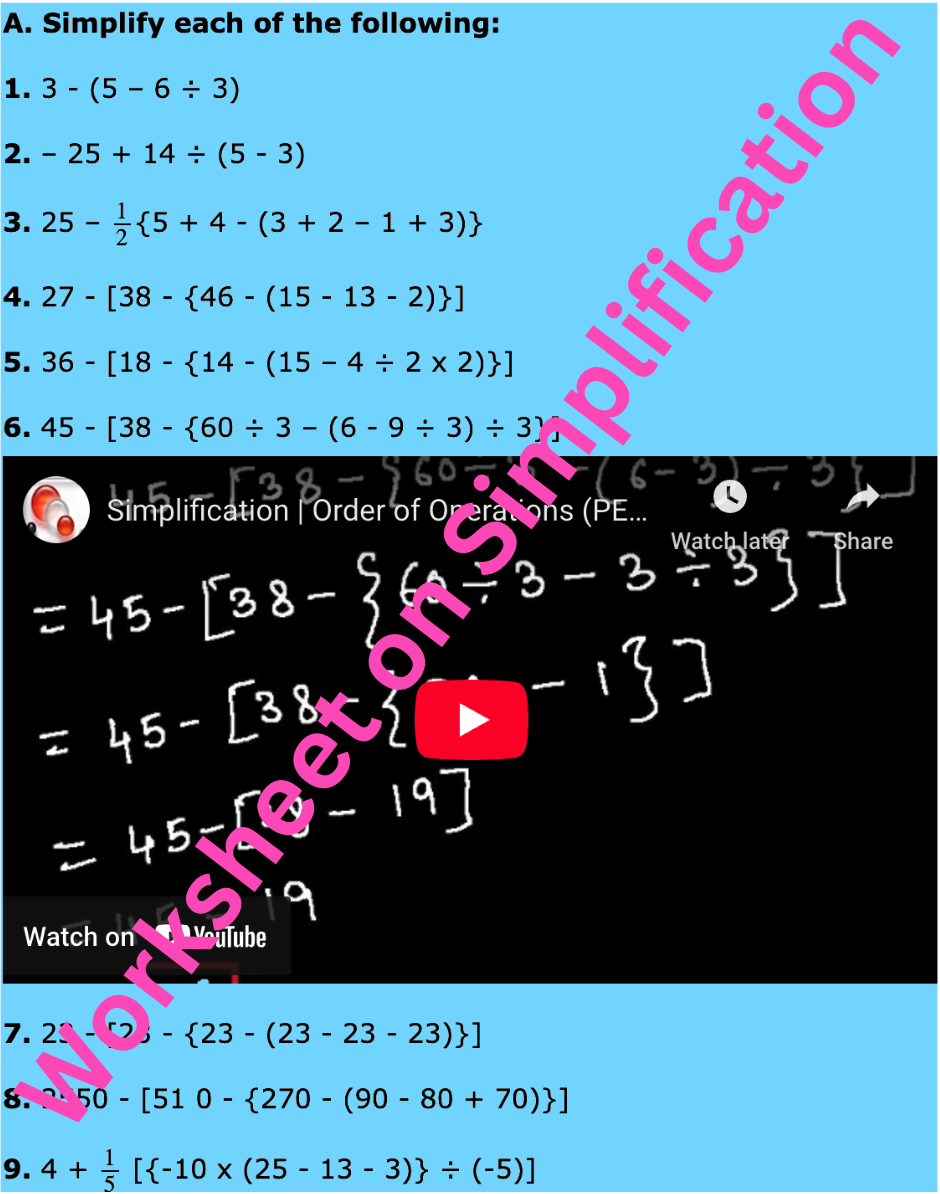Problem Solving on Multiplication
Problem solving on multiplication will help us to get the idea on how to solve the basic multiplication statement problems.
1. Three groups of ponies are eating. There are 2 ponies in each group. How many ponies are there in all?
Solution:
Number of groups of ponies = 3
Number of ponies in each group = 2
Therefore, total number ponies = 3 × 2 = 6
2. A coloring-pen cost 4 dollars. How many dollars Alex must have paid for 5 coloring-pens?
Solution:
Cost of a coloring-pen = $4
Number of coloring-pens = 5
Therefore, cost of 5 coloring-pens = $4 × 5 = $20
3. Andy had 2 groups of toy kittens. There were 5 kittens in each group. He put all the kittens in a basket. How many kittens were in the basket?
Solution:
Number of groups of toy kittens Andy had = 2
Number of kittens in each group = 5
Therefore, total number of kittens in the basket = 2 × 5 = 10
4. A table has 4 corners. In a classroom there are 8 tables. How many corners do 8 tables have in all?
Solution:
Number of corners a table has = 4
Number of tables = 8
Therefore, total number of corners 8 tables have = 4 × 8 = 32
More examples on statement problem solving on multiplication:
5. John is 9 years old. His brother is 3 times older than him. How old is John’s brother?
Solution:
Age of John = 9 years
Number of times his brother is older than John = 3
Age of John’s brother = 9 × 3 = 27 years
6. Mary is 5 years old. Her mother is 7 times as old as she is. How old is her mother?
Solution:
Age of Mary = 5 years
Number of times her mother is older than Mary = 7
Age of her mother = 5 × 7 = 35 years
7. There are 4 baskets. Each basket has 2 kittens. How many kittens are there in all?
Solution:
here are 4 baskets.
Each basket has 2 kittens
This can be written as: 4 × 2 = 8
Thus, there are 8 kittens in all
8. There are 5 crayon boxes. Each box has 3 crayons. How many crayons are there in all?
Solution:
There are 5 boxes
Each box has 3 crayons
This can be written as: 5 × 3 = 15
Thus, there are 15 crayons in all.
Worksheet on Problems on Multiplication:
1. Count and complete the following multiplication sums.
(i) There are 5 wheels. 1 wheel has 5 spokes.
5 × 5 = _____
Thus, 5 wheels have _____ spokes.
(ii) There are 3 zebras. I zebra has 4 legs.
3 × 4 = _____
Thus, 3 zebras have _____ legs.
(iii) There are 5 flower pots. I flower pot has 3 flowers.
5 × 3 = _____
Thus, 5 flower pots have _____ flowers.
(iv) There are 6 bicycles. I bicycle has 2 tyres.
6 × 2 = _____
Thus, 6 bicycles have _____ tyres.
(v) There are 3 spiders. I spider has 6 legs.
3 × 6 = _____
Thus, 3 spiders have _____ legs.
2. Word Problems on Multiplication:
(i) A pair of shoes contains 2 shoes. How many shoes are there in 4 pairs?
(ii) There are 5 boys in a row. How many boys are there in 5 rows?
(iii) There are 2 wheels in a bicycle. How many wheels are there in 6 bicycles?
Answers:
2. (i) 8
(ii) 25
(iii) 12
From Problem Solving on Multiplication to HOME PAGE
Didn't find what you were looking for? Or want to know more information about Math Only Math. Use this Google Search to find what you need.
Recent Articles
-
Counting Numbers from 1 to 50 | Match the Number | Missing Numbers
Apr 04, 25 03:46 PM
In counting numbers from 1 to 50, recognize the numbers, count and then join the numbers in the correct number order. Here we mainly need eye-hand coordination to draw the picture and maintain the num -
Counting Eleven to Twenty with Numbers and Words |Numbers from 11 - 20
Apr 04, 25 03:21 PM
Counting eleven to twenty with numbers and words are explained below. One ten and one more is eleven. Eleven comes after ten. One ten and two more is twelve. Twelve comes after eleven. -
5th Grade BODMAS Rule Worksheet | PEMDAS | Order of operations|Answers
Apr 03, 25 03:11 PM
In 5th Grade BODMAS Rule Worksheet you will get different types of problems on mathematical expressions involving different operations, mathematical expression with 'brackets' and 'of' and simplifying… -
Worksheet on Simplification | Simplify Expressions | BODMAS Questions
Apr 03, 25 02:58 PM
In worksheet on simplification, the questions are based in order to simplify expressions involving more than one bracket by using the steps of removal of brackets. This exercise sheet -
Divisible by 2 Video |Test of Divisibility by 2 Trick| Rules| Examples
Apr 03, 25 10:25 AM
A number is divisible by 2 if the digit at unit place is either 0 or multiple of 2. So a number is divisible by 2 if digit at its units place is 0, 2, 4, 6 or 8.







New! Comments
Have your say about what you just read! Leave me a comment in the box below. Ask a Question or Answer a Question.